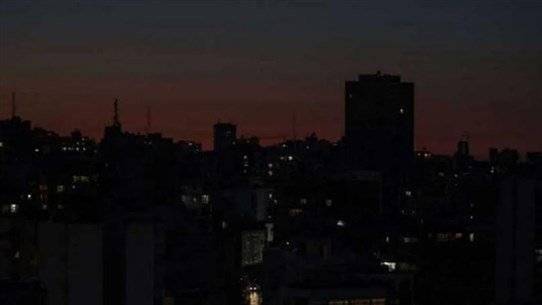Iraq has decided to renew fuel supply contracts to Lebanon for the electricity plants without increasing the quantity, keeping it at one million tons per year. This means that the plants will not shut down but will continue to operate at the pace recorded in the past year, which allows for a maximum of four hours of electricity outside peak times and two hours during peak times. An Iraqi delegation is set to arrive in Lebanon tomorrow for a two-day visit titled "Negotiating with the Lebanese side to benefit from the funds deposited in Lebanese banks." The Iraqi authorities have expressed a desire to meet with the following Lebanese officials: Prime Minister Najib Mikati, Minister of Energy Walid Fayad, and Central Bank Governor Riad Salameh.
It is natural that the visit is focused on the mechanisms for spending the funds that are supposed to have been paid by Lebanon to Iraq for the imported fuel under the latest contract to supply Lebanon with about one million tons for electricity production plants. So far, Iraq has accumulated about $550 million, which they should agree to settle through services provided by Lebanon to Iraqis in government hospitals, in paying for Iraqi air travel fees, and also in the field of education. This also applies to the amounts to be generated from the renewal of the contract for an additional million tons of fuel over the next 12 months.
In reality, the Iraqi delegation's visit follows the approval of the Iraqi Cabinet to renew the fuel supply contract to Lebanon. Despite Lebanon insisting on amendments to the contract that would include increasing quantities, Iraq did not agree, which means that the supply of one million tons will continue under the previous payment mechanism. Some interpretations suggest that the Iraqi side views the contract as a "gift" given the payment mechanism in Lebanese pounds and the spending of the collected amounts in Lebanon. However, for Lebanon, it is more than that; it is considered a lifeline to avoid completely shutting down electricity production plants.
In the past 12 months, following the signing of the Iraqi fuel contract, Lebanon was able to produce between two and four hours of electricity daily with these quantities. However, in recent months, particularly following the explosion of the Russian-Ukrainian crisis and its reflection in rising oil prices, it has been observed that the quantities coming to Lebanon have decreased. This is because Lebanon receives a fixed quantity of Iraqi fuel, but with specifications that do not match those used in the production plants. Consequently, Lebanon had to barter this quantity for other quantities that have more expensive specifications. Initially, before the Russian-Ukrainian crisis, Lebanon received 80,000 tons monthly and bartered it for about 60,000 tons, which ensured the production of four hours of electricity daily. However, as prices rose, the resultant quantity from the barter decreased to 40,000 tons, which is no longer sufficient to produce more than two hours during peak summer demand for electricity.
These variables, namely the global price per ton and the actual local demand for electricity, may not continue at the same pace next autumn, meaning that the Lebanese Electricity Company could potentially increase supply hours. For this reason, a meeting was held yesterday at the Ministry of Energy, attended by Kamal Hayek, the Chairman and General Manager of the Lebanese Electricity Company, and Sami Alawiyah, the Chairman and General Manager of the Litani Water Authority. The meeting aimed to redistribute the electricity produced by the two institutions to expand the coverage area. According to sources at the meeting, the main problem lies in the distribution of hours of electricity produced, especially considering the many political and public pressures in the areas surrounding the production in the Litani plants, where it may be possible to reduce some hours and redistribute them to other villages and towns, even if the Lebanese electricity network is used in this context.




